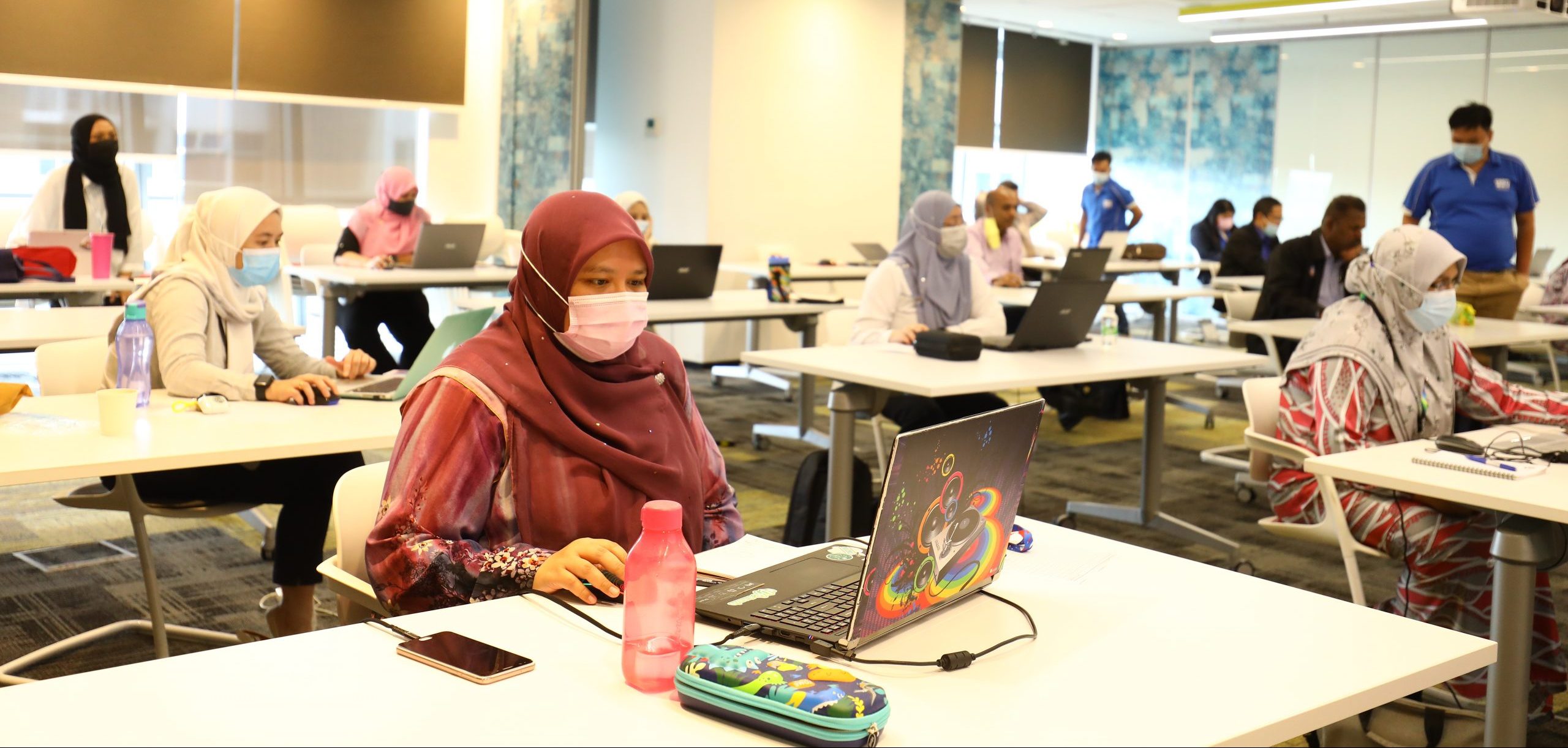Malaysia is making strides in digital transformation that is reimagining the country’s economic landscape and business activities in the digital age. To foster this journey, Malaysia has leveraged emerging technologies to achieve success in digitalization.
Exploring the Digital Transformation Opportunities in Malaysia
The country is located in the heart of ASEAN with valuable natural resources and a skilled workforce. Besides, driven by a supportive government and massive opportunities to drive advanced technologies, Malaysia has the potential to become a regional powerhouse.
Embracing digital disruption for the economy
According to Bloomberg, Malaysia grew at the fastest pace in more than two decades in 2022, outpacing the growth rate in many of its Southeast Asian peers.
Besides, the digital economy is one of Malaysia’s key economic pillars. The country’s ICT sector has grown consistently, becoming the third-largest contributor to the country’s GDP. DOSM indicates that the ICT contribution to GDP has increased over the years and is projected to rise to 25.5% by 2025.

The reason for this continuous growth was due to the 10-year roadmap of The Malaysia Digital Economy Blueprint – an initiative that reflects the Government’s aspiration to transform Malaysia into a regional leader in the digital economy.
Digital revolution journey
The global business landscape is evolving, opening up new growth opportunities. Technological advancements such as Artificial Intelligence (AI), Blockchain, Internet of Things (IoT), and Intelligent Automation have emerged as the driving force behind business innovation.
Significantly, the tech market will accelerate and can deliver a 10X growth benefit over traditional markets in the next five years. This represents a notable opportunity for Malaysia to become a global leader in technology governance and innovation.
AlphaBeta reports that if exploited to the maximum, digital technologies could generate up to MYR257.2 billion (USD61.3 billion) worth of economic value annually for Malaysia by 2030. Hence, the Malaysian government has allocated to provide RM 100 million in digitalization grants for 20,000 SMEs to increase their automation and business productivity.

A Robust Digital Transformation Strategy: Building a Digital Workforce
Building digital skills for the jobs of the future
World Economic Forum (WEF) report highlights that over 80% of new jobs would need more digital skills in the coming years. Economist Impact states that digital skills become the key focus for employees in Malaysia, with nearly 90% focusing on developing basic digital skills. The survey also reveals that Malaysian employees place special emphasis on advanced digital skills such as Artificial Intelligence (AI), Machine Learning (ML), cloud computing, and cybersecurity. Therefore, taking on digital technology skills will be key for future job prospects and magnify Malaysia’s potential in the new digital age.
To ensure Malaysian employees can catch the wave of digitalization, the Malaysian government is undertaking efforts to nurture future digital talents. The Malaysia Digital Economy Blueprint includes several initiatives, such as developing and upskilling the workforce’s digital skills, accelerating the adoption of digital technologies within the current curriculum, and promoting digital knowledge among the public.

Unlocking digital transformation potential with emerging technologies
“Technology is changing at such a rapid pace that it is hard to predict which technologies we require a few years from now. So, we might be training the workforce on ‘new’ technologies that might be obsolete three years down the line.”, said Kurt Bergmans, the Head of Global IT Service Operations for BP. To further unlock new possibilities, Malaysia should accelerate technology adoption and innovation.
Generative AI
Generative AI (AI) is on the rise in Malaysia. It can potentially unlock US$113.4 billion worth a quarter of the country’s GDP, according to SCMP. Besides, EY’s research shows that 70% of workers are currently using or planning to use the technology in 2024.
In 2024, this disruptive technology will continue to transform several industries with even larger and more powerful models. These larger models will unlock new possibilities, from personalized content, and audio to art. With enhanced performance and increased training capabilities, Gen AI will create more immersive experiences for customers.
Notably, the enhancements of multiple AI models such as Machine Learning and Deep Learning can optimize Gen AI’s capabilities. Together, they can facilitate businesses to unlock new levels of efficiency, personalization, customer engagement, etc.

Intelligent Automation
Intelligent Automation (IA), the combination of Robotic Process Automation (RPA) and AI, is poised to become an increasingly key technology in 2024. Leveraging the capabilities of AI and RPA, IA can transform and speed up the endless processes of businesses, further powering up business’s efficiency and agility. akaBot x IDC’s report discovers that by 2024, more than 90% of businesses will adopt automation at various levels in various processes for improved process optimization and productivity.
Therefore, the transition to IA will be a strategic goal for Malaysian organizations to achieve operational excellence and supercharge the enterprise’s operation.
Quantum Computing
According to (IBM) Malaysia managing director Catherine Lian, Malaysia should not get “left behind” in the race to adopt Quantum Computing.
This has the potential to solve complex business challenges at unexpected speed and scale. At its core, quantum computing takes advantage of quantum mechanics principles to perform massive calculations quicker than traditional computers, enabling it to handle diverse tasks such as optimization, simulation, and cryptography. Quantum computing can be significantly sped up with AI to seamlessly process enormous amounts of data at higher speed and accuracy.

Human-bot collaboration
2024 will witness significant human and bots collaboration in the workforce. When collaborating, humans and bots can enhance each other’s strengths and compensate for each other’s weaknesses. Besides, humans can delegate some tedious and manual tasks to bots, so they can concentrate on more complicated, value-added jobs, stimulating skill development and higher worker satisfaction.
By achieving effective collaboration between humans and bots, businesses can reap numerous benefits such as improved performance, enhanced efficiency, reduced costs, and a more innovative work environment.
Therefore, there is a need for Malaysia to embark on fostering cooperation between humans and bots in the digital workforce, further strengthening workforce innovation in the country.
Wrapping Up
Malaysia has made massive investments in emerging technologies and thriving initiatives and programs that nurture a digital workforce. As a result, the future of Malaysia is prosperous, with a desirable transition to a high-income economy between 2024 and 2028.
References
How CIOs can create a digital workforce in Malaysia
Harnessing the Power of Technology: Building a Strong Digital Economy for Malaysia’s Future
Malaysia – Driven by digital evolution
Digital Transformation in Malaysia: Opportunities and Challenges
Bridging the skills gap: Fuelling careers and the economy in Malaysia
Malaysia Digital Economy Blueprint
akaBot (FPT) is the operation optimization solution for enterprises based on RPA (Robotic Process Automation) platform combined with Process Mining, OCR, Intelligent Document Processing, Machine Learning, Conversational AI, etc. Serving clients in 20+ countries, across 08 domains such as Banking & Finances, Retails, IT Services, Manufacturing, and Logistics…, akaBot is featured by Gartner Peer Insights, G2, and ranked as Top 6 Global RPA Platform by Software Reviews. akaBot also won the prestigious Stevie Award, The Asian Banker Award 2021, etc.
Leave us a message for free consultation!

